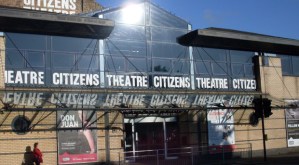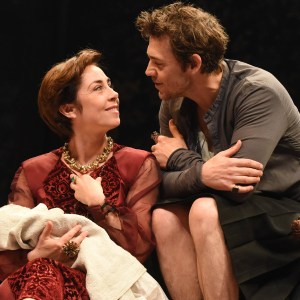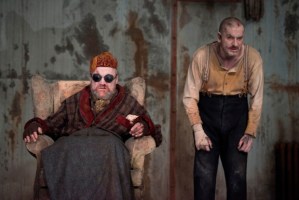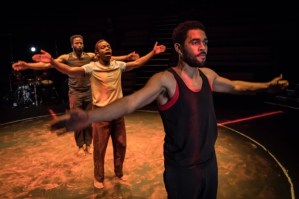Review: Bold Girls (Citizens Theatre, Glasgow)
Rona Munro’s play centres on a trio of women living in the Catholic Andersonstown area of Belfast during the time of the Troubles
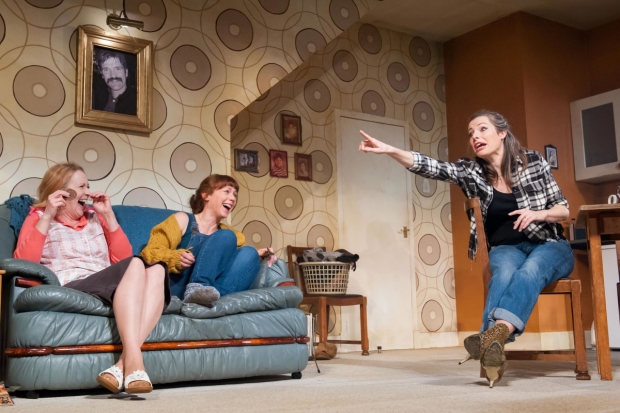
© Tim Morozzo
I grew up in Northern Ireland in the 1990s, and my primary school teachers often told me off for being "bold". I had no idea that this was meant to be a criticism, and it took me years to figure out that they were telling me off. In Northern Irish parlance, "bold" loses its connotations of bravery and instead stands for someone who is cheeky, forthright to the point of rudeness, and who shows an unseemly inclination to push themselves forward. The title of Rona Munro’s 1991 play takes in both meanings of the word, centering on a trio of women living in the Catholic Andersonstown area of Belfast during the time of the Troubles.
At first glance this four-hander depicts a close-knit community. Marie (Lucianne McEvoy) is the widow of Michael, who we discover was shot dead by 'the British'. His picture hangs prominently on the wall, smiling down on Marie as she raises two children in difficult circumstances. Across the road live Nora (Deirdre Davis) and her daughter Cassie (Scarlett Mack), whose husband Joe and several of his associates are in prison serving time for offences linked to Republican violence.
Set over the course of about twelve hours from 6pm to 6am, most of the play is structured as fourth-wall-naturalism, and the characters and situation are broadly very well drawn. I particularly liked the way Munro captures the characters’ thrawn nature, particularly when it comes to resisting authority, a very Belfast trait. There’s also a gallows humour typical of the setting, which you see in Nora’s delight as she tells of the time she took on the policemen who came to arrest her son-in-law. Similarly, Marie's description of four men who you never see is delicately observed, bringing to life the one with the conversation-stopping eyebrows who you’d cross the road to avoid.
The performances are universally strong, especially McEvoy who is fun-loving and optimistic as Marie but who also feels deeply and exudes an air of wisdom, in contrast to the for-the-moment vigour of Cassie. I really liked Neil Haynes’ sets, too, not least because Marie’s front room reminded me of many that I’d spent time in as a kid.
The mysterious figure of Deirdre (Sinéad Sharkey) is a problem, though. Early in the play, the questions over who she is and where she comes from drive the drama in what looks like an interesting, perhaps supernatural direction. But that’s cleared up very quickly when we see her in the earthy setting of the local club as a waitress. The resolution of her tale is a plot twist that many will see coming.
More seriously, the play’s dramatic climax is highly fraught, going from zero to sixty in a very short space of time without every really paving the way for the emotional torment that we’re thrown into. I also struggled to believe the extent of the emotional journey that the characters go on and the redemption hinted in the final tableau is a bit by-numbers and formulaic.
That’s not a phrase you’d expect to see used of the author of The James Plays, the sellout hit of the 2014 Edinburgh International Festival, and you wouldn’t say it of her more recent work. However, if Bold Girls isn’t a patch on the craftsmanship and assurance of the work that Munro has produced since, it’s nevertheless good fun, and worth catching for the sympathetic performances alone.
Bold Girls runs at Citizens Theatre, Glasgow until 10 Feb.


